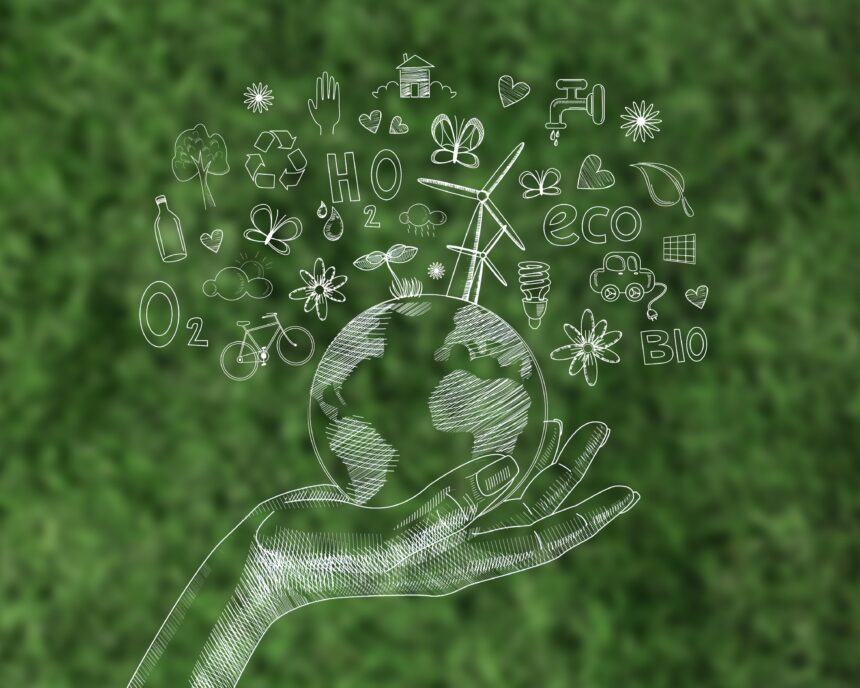Non-Fungible Tokens (NFTs) have gained significant attention in recent years for their ability to revolutionize digital ownership and provide new opportunities for creators. While NFTs have been primarily associated with art and collectibles, they also hold immense potential for promoting environmental conservation and sustainability efforts. South Africa, with its diverse ecosystems and commitment to environmental preservation, has emerged as a hub for innovative NFT projects aimed at supporting conservation initiatives. In this article, we explore how NFTs can contribute to environmental conservation and highlight some notable South African projects that are leading the way in sustainability.
The Intersection of NFTs and Environmental Conservation
NFTs are unique digital assets that can represent ownership or proof of authenticity for any type of digital or physical item. They utilize blockchain technology to provide immutable records of ownership and enable transparent transactions. This technology presents a powerful tool for environmental conservation by leveraging the digital space to support sustainability initiatives.
One of the significant ways NFTs can promote conservation is through fundraising. NFT auctions or sales can generate revenue that can be directly allocated to environmental projects, such as habitat restoration, wildlife protection, or community-driven sustainable development. By engaging collectors and art enthusiasts, these projects create a symbiotic relationship between NFT ownership and environmental stewardship.
South African NFT Projects for Sustainability
- Rhino Coin by the Southern African Wildlife College: The Rhino Coin project, developed by the Southern African Wildlife College, aims to combat rhino poaching by utilizing blockchain technology and NFTs. Each Rhino Coin represents one gram of ethically-sourced gold and is backed by physical bullion stored in secure vaults. The sale of Rhino Coins generates funds that support anti-poaching efforts and conservation programs focused on protecting rhinos in South Africa.
- Art for Change: Art for Change is an NFT platform that highlights South African artists and supports environmental initiatives. The platform collaborates with local artists to create unique digital artworks, which are then auctioned as NFTs. A significant portion of the proceeds goes towards funding projects that tackle environmental challenges such as deforestation, water scarcity, and climate change adaptation.
- Conservation X Labs: Conservation X Labs, an international organization with a presence in South Africa, is exploring the potential of NFTs to promote sustainable fishing practices. By creating NFTs that represent sustainably caught fish, they incentivize responsible fishing techniques and provide a transparent supply chain for consumers. These NFTs can track the entire journey of a fish from the ocean to the consumer’s plate, ensuring the adherence to sustainable fishing standards.
- Virtual Reserves by African Wildlife Foundation: The African Wildlife Foundation (AWF) is developing Virtual Reserves, an NFT project that allows individuals to invest in virtual representations of real wildlife reserves in Africa. These virtual reserves can be purchased as NFTs and their value can increase over time based on the success of the corresponding real reserves in terms of conservation and community development. The project aims to raise awareness and financial support for African wildlife conservation.
Conclusion
South African projects at the intersection of NFTs and environmental conservation demonstrate the potential of this technology to create positive change. By utilizing NFTs as a tool for fundraising, promoting sustainable practices, and raising awareness, these initiatives foster a new approach to sustainability. They showcase how digital ownership can be leveraged to support environmental causes, protect wildlife, and preserve South Africa’s rich natural heritage. As the world recognizes the urgent need for conservation efforts, the fusion of NFTs and environmental preservation presents an exciting frontier for sustainable development.










